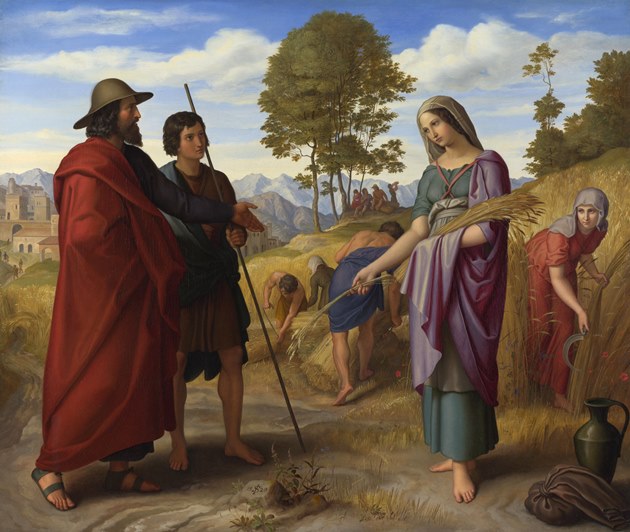
The Last Edge Harvested
One form of assistance which the Torah mandates to be given to the needy is the mitzvah of pei'ah. The farmer must leave over a corner (pei'ah) of his field for the poor.
“When you reap your land’s harvest, do not completely harvest the corners of your fields. ... Leave them for the poor and the stranger.” (Lev. 19:9-10)
The Sages stressed that the area left over for the poor must be the very last edge harvested. One may not set aside a section at the start or in the middle of the harvesting process. Why not? By requiring pei'ah to be the final section of the field that was harvested, the Torah establishes a set time for the poor to claim their portion. The Talmud (Shabbat 23a) notes that this provision prevents four potential problems:
Rav Kook wrote that these four concerns clarify the Torah’s views on charity.
Moral Duty
The very phrase, “stealing from the poor,” is instructive. Helping the needy is not simply a matter of generosity. It is a social and moral obligation. The Hebrew word for charity (tzedakah) comes from the root tzedek, meaning justice. One who refuses to assist the poor does not just lack the quality of generosity. He is a thief, stealing from what rightfully belongs to others!
In general, the existence of poverty in the world should not be looked upon as a purely negative phenomenon. There are many purposes to poverty, including its contribution to our spiritual growth.
Empathy for the Poor
If we only emphasize the obligatory aspect of tzedakah, we are concentrating solely on the donor’s standpoint and overlooking the needs of the one receiving. This mitzvah also requires an attitude of generosity and kindness. We need to have empathy for the needy and their troubles. For this reason, the Torah expresses concern for the poor person’s time and his sense of self-respect. He should not have to wait until the owner finally decides to provide him with produce from the pei'ah.
In short, the foundation of Jewish charity is duty. But an attitude of empathy and understanding is also necessary to fully attain the goal of tzedakah .
Social Obligation
Social mores can serve to protect the weak and the destitute. Some people give because they are embarrassed to be seen as stingy and uncaring. In addition, society honors generous donors and benefactors.
The first two aspects mentioned, our moral obligation and the need to develop empathy, comprise the internal incentive to help the poor. Only taking these aspects into account, however, minimizes the contribution of social pressure to encourage people to support the needy. One who is fully aware of the importance of charity does not require this external motivation. Not everyone, however, achieves this level of enlightenment. For the good of society as a whole, the Torah affirms the importance of social obligations to give and help others. With regard to the mitzvah of pei'ah, this is expressed by our concern that society may unjustly place suspicions on those who in fact did set aside pei'ah.
Stopping Swindlers
The fourth problem — closing off a potential loophole for swindlers — only applies to the lowest, most corrupt segments of society. Nonetheless, this is a sufficient reason to obligate all members of society. An organic unity exists within society. People are influenced by one another, and an enlightened individual cannot claim to be impervious to the overall moral decay that such a loophole might bring about in society’s lower elements.
(Sapphire from the Land of Israel. Adapted from Ein Eyah vol. III, pp.74-75)





